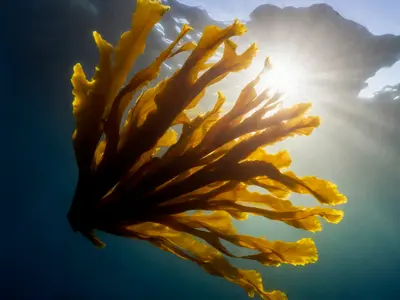ALTER

The ALTER project investigates the genetic and molecular basis of apogamy and life-cycle regulation in multicellular red algae, with a focus on Gracilaria chilensis. Red algae are ancient photosynthetic eukaryotes that pioneered the evolution of complex multicellularity and are crucial habitat builders in marine environments. Apart from their critical ecological role, red algae provide a valuable economic resource for industry and aquaculture. A unique characteristic of most red algae is their triphasic life cycle, where transitions between haploid and diploid stages are tightly regulated. However, deviations such as apogamy and apospory, which are forms of asexual reproduction that bypass fertilization or meiosis, present intriguing opportunities for understanding reproductive plasticity and for developing innovative breeding strategies. Recent findings in G. chilensis show complex reproductive phenotypes, such as male gametophytes producing carposporangia alongside normal reproductive structures without prior fertilization, suggesting apogamy. These laboratory observations create a unique opportunity to experimentally dissect the regulators of these alternative reproductive modes in Gracilaria. Leveraging new genomic resources generated by our teams, including genome assemblies, sex chromosome analyses, and the Rhodoexplorer database, this project aims to identify molecular players governing life-cycle transitions. Establishing proof-of-concept approaches in G. chilensis will provide a foundation for broader studies on algal life-cycle control, with implications for evolutionary biology, reproductive genetics, and sustainable aquaculture.
CNRS International Call 2025 “Marine Biology and Ecology”
Participants
Agnieszka Lipinska, Olivier Godfroy, Marie-Laure Guillemin, Sylvain Faugeron
